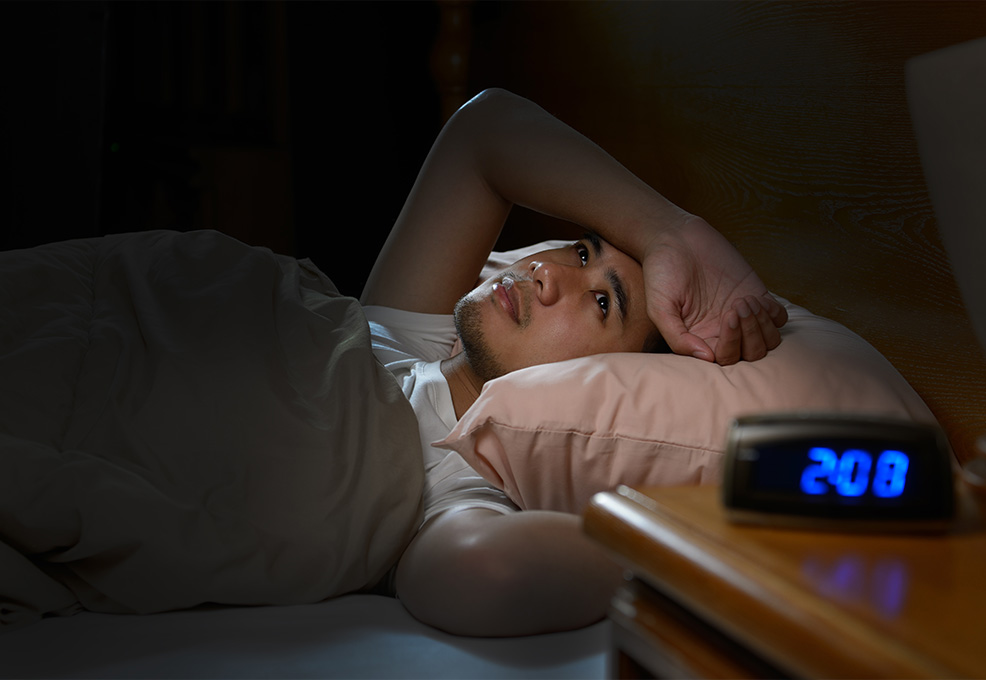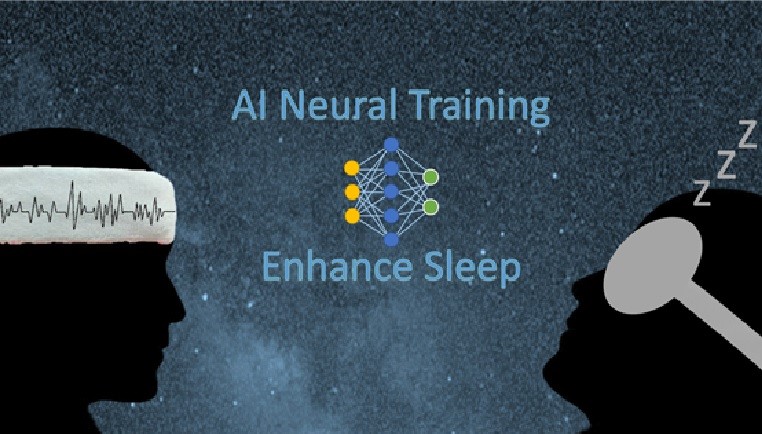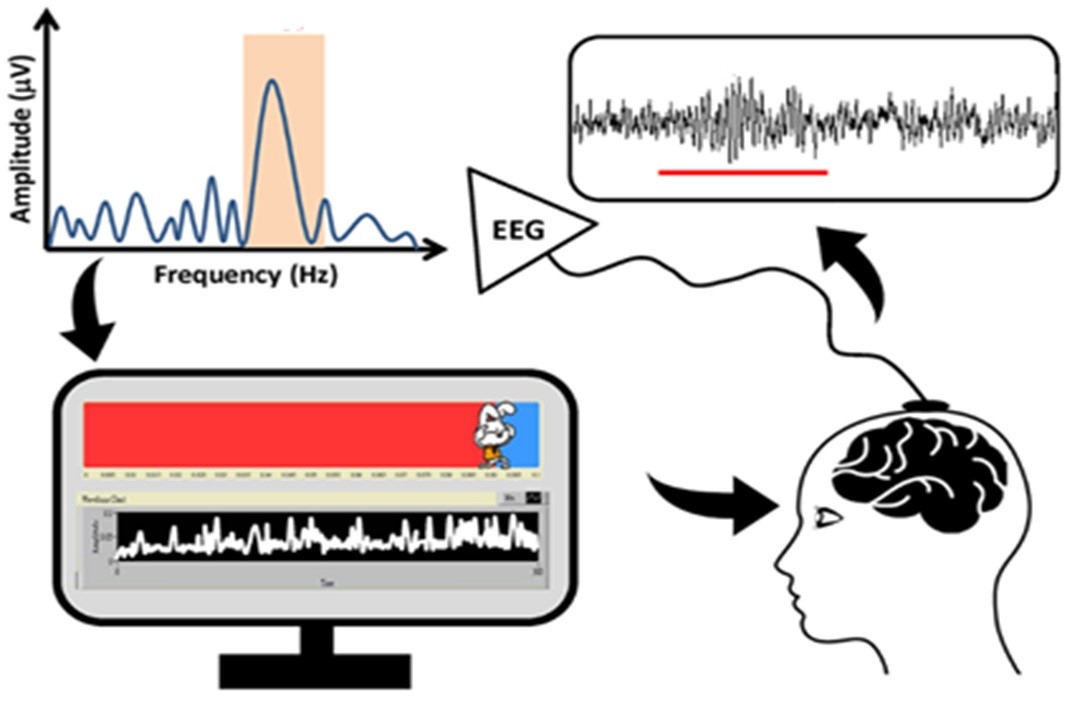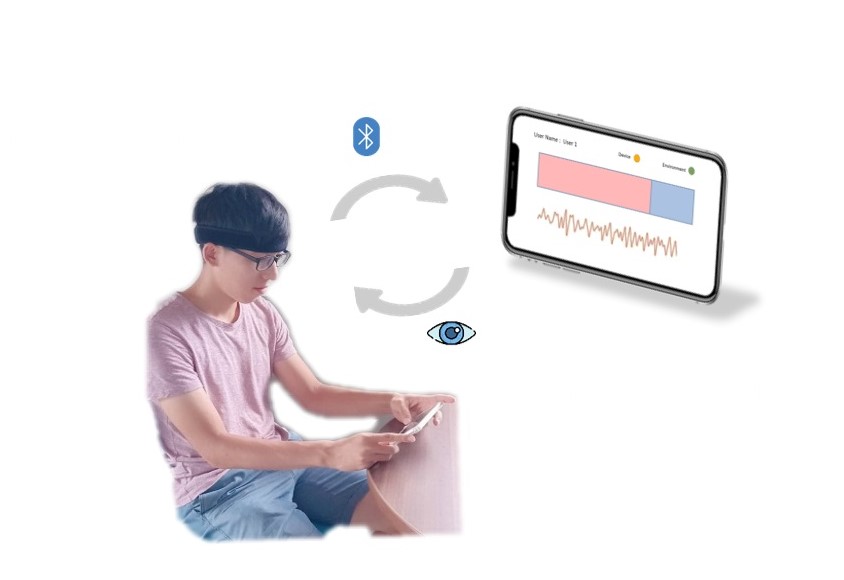AI-Enhanced Safety of Prescriptions

Author(s)
Sheng-Fu LiangBiography
Prof. Liang is currently a Professor in the Department of Computer Science and Information Engineering, National Cheng Kung University (NCKU), Taiwan. He is also the Director of the Institute of Medical Informatics, NCKU, and the Director of the AI Biomedical Research Center at NCKU, funded by the Ministry of Science and Technology (MOST), Taiwan.
Academy/University/Organization
National Cheng Kung University-
TAGS
-
Share this article
You are free to share this article under the Attribution 4.0 International license
- LIFE SCIENCES
- Text & Image
- November 23,2020
Human beings spend approximately one third of their life sleeping. Sleep is essential for the body and brain to recover during the night. Insufficient sleep can affect one’s safety and quality of life, such as causing daytime fatigue or sleepiness. It can also increase the risk of a variety of other health problems. Over-active neurobiological and psychological systems contribute to difficulty sleeping. Neurofeedback training (NFT) which assists users in learning to control and regulate their brain activities through the feedback indication calculated from real-time brain activity is expected to be helpful in regulating insomnia. The iSleep Better system integrates a wearable and comfortable device for brain activity sensing and artificial intelligence (AI) analysis apps to perform the intelligent NFT for the treatment of chronic insomnia. In addition, the AI sleep EEG scoring app is also developed to provide accurate sleep metrics for insomnia diagnosis and the objective evaluation of sleep improvement after treatment. Preliminary results of the on-going clinical study show significant improvements in the severity of insomnia and the sleep measures as sleep onset latency after six weeks of NFT for chronic insomniac patients with depression or anxiety. Improving sleep quality can also be expected to have a benefit of reducing the symptoms of mental health disorders. The aim for this system is to eventually be offered in hospitals as well as everyday life to help those who suffer from sleep disturbances. It is expected that we can bring iSleep Better to the market to help more people sleep better in the near future.

Before going to bed, we say “good night” to wish the other person a night of peaceful sleep and pleasant dreams. After waking up in the morning, we ask each other how they're feeling after the night’s sleep. Sleep is as vital as the air we breathe and the water we drink. It is essential for the body and brain to recover during the night. However, not everyone is able to get enough sleep or a good sleep. Various studies worldwide have shown the prevalence of insomnia in 10%–30% of the population, and approximately 10% of people have chronic insomnia. Similarly, recent surveys show that 23.3% of Taiwanese suffer from insomnia. Insomnia involves both a sleep disturbance and daytime symptoms. Insomnia includes difficulty falling asleep, trouble staying asleep, and/or waking up too early in the morning. Insufficient sleep causes various daytime symptoms such as fatigue, daytime sleepiness, trouble concentrating, increased errors or accidents. In order to get better sleep, the annual consumption of sleeping pills is estimated to be 920 million in Taiwan. Prescription sleeping pills can be an effective short-term treatment to help fall asleep more easily or to stay asleep longer. However, sleeping pills have risks for people with certain medical conditions such as liver or kidney diseases, blood pressure problems, and heart rhythm problems. They may not be the best long-term insomnia treatment, and it is suggested that they not be taken for longer than 4 weeks. Therefore, an effective treatment for chronic sleep problems without the risk of side effects or dependence is desired.

Fig. 1: Diagram of a neurofeedback training system
Stressful life events that cause worry and fear contribute to a state of hyperarousal. Hyperarousal is a key component in modern etiological models of insomnia disorder. Some relaxation techniques including breathing exercises, muscle relaxation, and meditation have been proposed to reduce stress that may benefit people with insomnia. In order to provide objective indications, biofeedback can help people control different bodily functions based on the feedback signals extracted from blood pressure, breathing and heart rates, and other metrics. Because a hyperactive brain contributes to insomnia, the neurofeedback training (NFT) that assists users in learning to control and regulate their brain activities through the feedback indication calculated from real-time brain activity is expected to be more helpful for regulating the central nervous system into balance to enhance sleep quality. Among the residual symptoms in remitted depressive or anxiety disorders, most patients are greatly concerned about their sleep disturbances. These sleep disturbances not only influence the patient’s cognitive function, but also increase the relapse rate of depression or anxiety. A research project led by National Cheng Kung University (NCKU) Professor Sheng-Fu Liang is aiming to develop an intelligent neurofeedback training and sleep quality assessment system for chronic insomnia especially for residual insomnia, the treatment of which is a large unmet need in the management of patients with depression or anxiety. This ongoing project is under the Artificial Intelligence Biomedical Research Center (AIBMRC) supported by the Ministry of Science and Technology (MOST) Taiwan to develop innovative AI biomedical technology for smart medicine and smart healthcare.

Fig. 2: The iSleep Better system to perform the intelligent NFT for the treatment of chronic insomnia.
The iSleep Better system is proposed in this project to provide an efficient and effective solution to respond to the unmet need of treating residual insomnia in patients with depression and anxiety. The technology is developed by AI experts, neuroscientists, and clinical sleep experts. It is an AI-based brain computer interface (BCI) system that can provide functions from sleep monitoring to sleep enhancement. The iSleep Better system integrates an easy-to-wear device for comfortable brain activity acquisition and an AI app for on-line EEG analysis to perform the intelligent NFT. Through iterative human-computer/mobile platform interactions, the users learn how to tune brain activities on demand through the visual feedback of particular brain rhythms. In addition to NFT, an AI sleep EEG scoring app has also been developed to provide accurate sleep metrics for insomnia diagnosis and the objective evaluation of sleep improvement after treatment. Preliminary results of the on-going project show that chronic insomnia in patients with depression or anxiety can be significantly reduced in insomnia severity measurements and sleep onset latency after 6 weeks of neurofeedback training. The improvements can be maintained during the 6 months of follow-up. This system’s acceptance is high due to the easy-to-wear device, simple interaction with the app, and effective sleep enhancement according to interviews with the users.
These achievements of the iSleep Better system are also recognized. It was elected by MOST Taiwan Tech Arena to be demonstrated at the Consumer Electronic Show (CES) 2020, Las Vegas. It also won the 2020 National Innovation Award and was invited to be exhibited at the Taiwan Healthcare+ Expo 2020. The aim for this system is to eventually be offered in hospitals as well as everyday life to help those who suffer from sleep disturbances. It is expected that we can bring iSleep Better to market to help more people sleep better in the near future.
STAY CONNECTED. SUBSCRIBE TO OUR NEWSLETTER.
Add your information below to receive daily updates.




